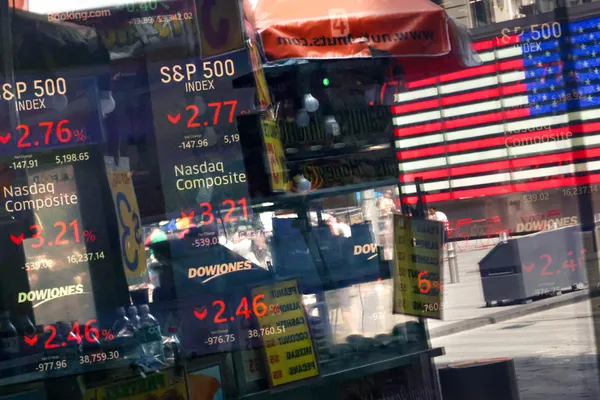
The tumultuous waves of the Big Tech selloff have started to settle, and global markets have begun to regain their balance. This development has resulted in trimmed losses for the stock market, a much-needed respite after the overwhelming highs and lows the market has seen recently. But what does this mean for the average investor, small businesses, and the wider economy?
The Big Tech selloff, which saw giants like Apple, Amazon, and Microsoft suffer significant price drops, had a staggering impact. Investors were left on edge, small businesses faced uncertainty, and the overall market sentiment shifted. However, the easing of this selloff has not only trimmed losses but also provided a glimpse of resilience that the market possesses.
Various factors have contributed to this stability. Firstly, the Federal Reserve's consistent support has been significant. Their commitment to low-interest rates has helped buffer the market against potential shocks. Additionally, optimism around the vaccine rollout and economic reopening has also helped steady the market.
For the average investor, the trimmed losses signal a potential opportunity for investment. With prices of Big Tech stocks lower, many might see this as a chance to buy into companies they believe in at a more affordable price. However, this approach is not without risk, and investors should be wary of potential volatility down the line.
Small businesses, particularly those dependent on the tech industry, also stand to benefit from the easing of the selloff. The stability in tech stocks could mean a more predictable business environment, which can aid in decision-making and long-term planning. However, small businesses must remain vigilant to the potential for further market fluctuations.
In the wider economic context, the trimming of losses in the stock market can contribute to improved market sentiment. This rebound could stimulate economic activity as businesses and individuals gain confidence in the market's stability. The rise in gold prices after a four-session losing streak also signals a return of investor confidence in traditional safe-haven assets.
However, it's important to remember that while the easing of the Big Tech selloff and the trimming of market losses are positive signs, they do not guarantee a smooth sailing ahead. The market remains susceptible to a variety of factors, including geopolitical tensions, inflation concerns, and further pandemic-related disruptions. Therefore, a cautious, well-informed approach to investing and business decision-making remains crucial.

 Next
Next
Comments (0)
Leave a comment